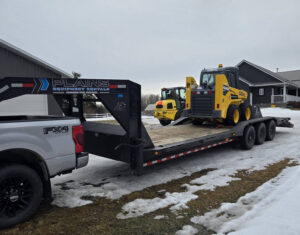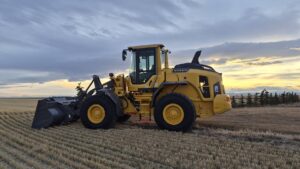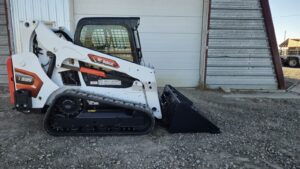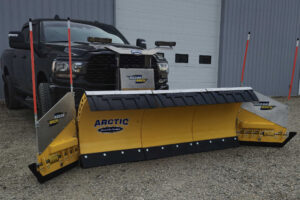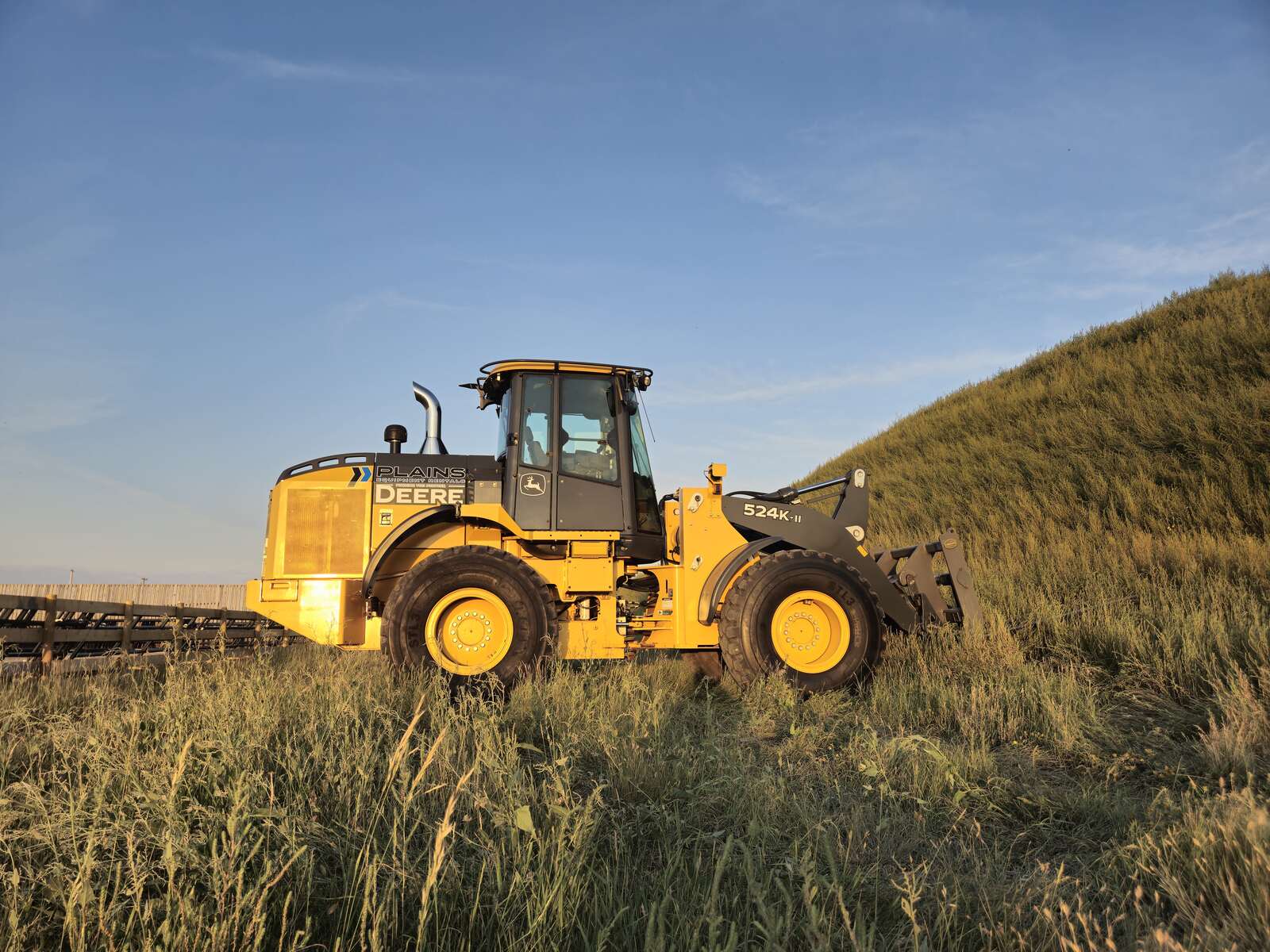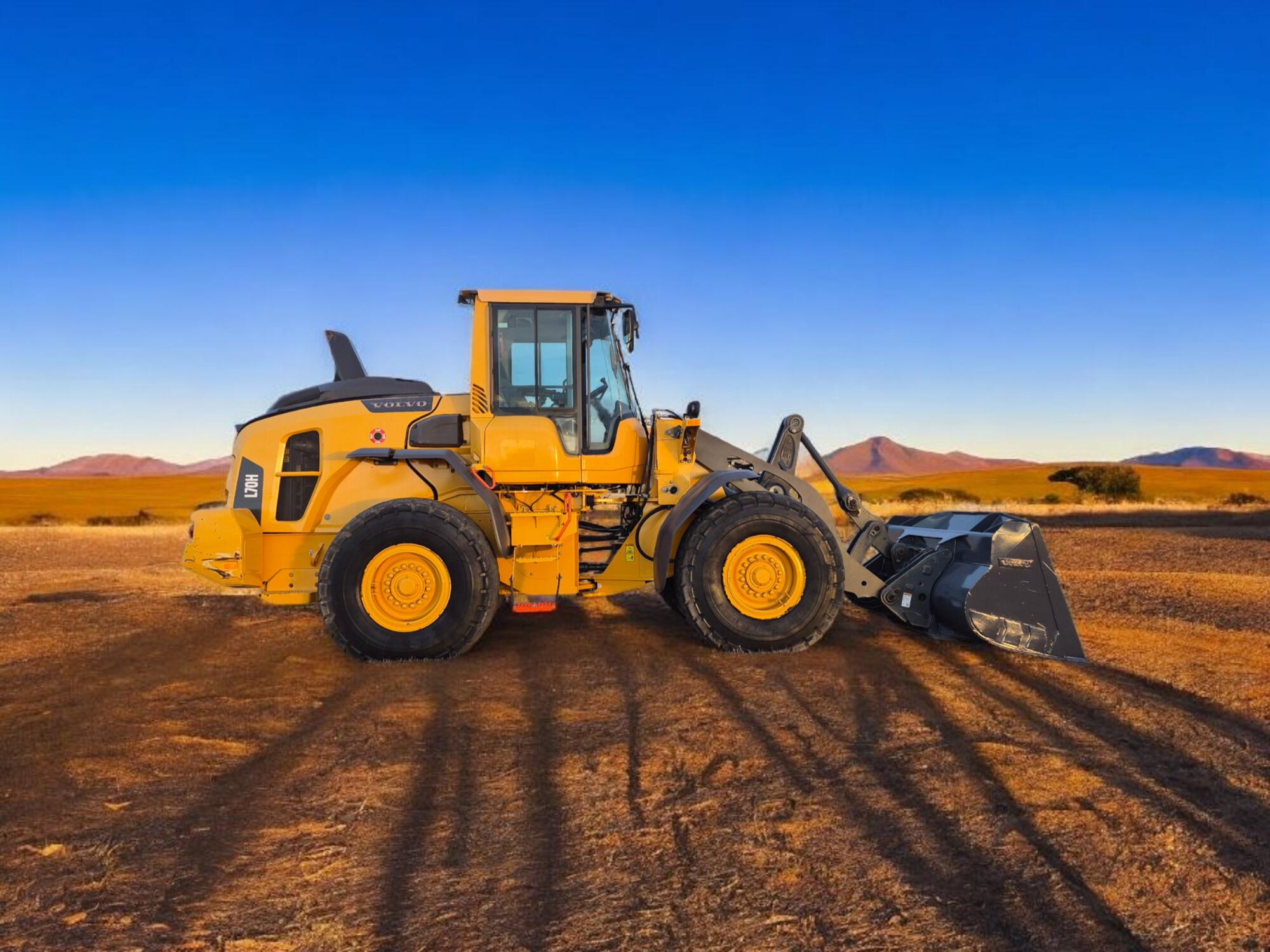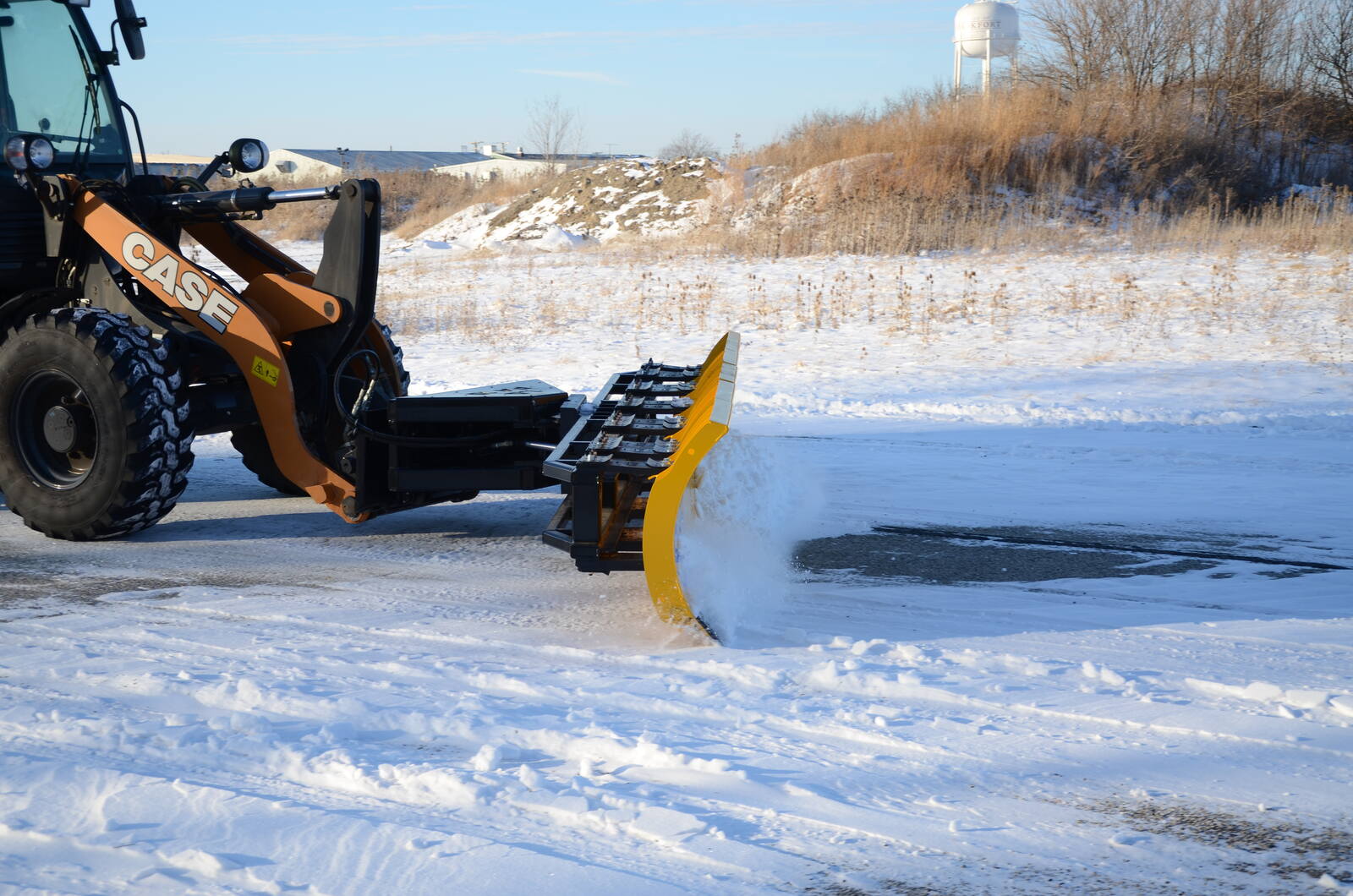From clearing snow in the Rockies to moving gravel on rural job sites, wheel loaders are the backbone of many industries across Western Canada. Their power, versatility, and adaptability make them essential for construction, agriculture, oil and gas, and municipal operations. But while they’re a familiar sight on job sites, there’s often confusion around what makes one loader different from another—especially when it comes to road use, size classifications, and choosing the right machine for long-term needs. Here, we’ll break it all down to help you get the most from your next loader rental or purchase.
Table of Contents
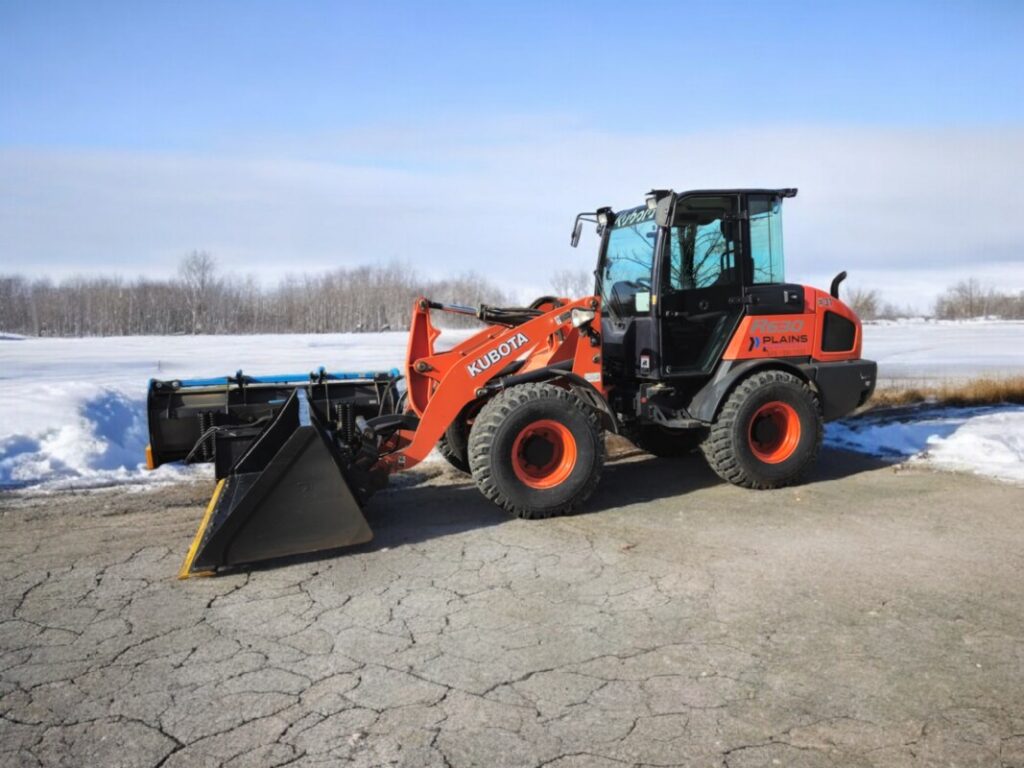
Are Wheel Loaders Road Legal in Canada?
If you’ve ever wondered, “Can I drive a wheel loader on public roads?” — the answer is: it depends.
In Canada, wheel loaders can be operated on public roads, but their legality is governed by provincial and municipal regulations. Understanding the local rules is essential for avoiding fines, delays, or safety issues during equipment transport or use.
General Road Rules for Wheel Loaders:
- Speed Restrictions: Most loaders are limited to a top speed of 40 km/h or less, making them unsuitable for highway travel without special permits.
- Registration and Licensing: Loaders typically require special permits or municipal road-use agreements to be operated on public roadways. Some regions allow temporary registration for short-distance transport.
- Four-Way Flashers and Hazard Signs: These are necessary for safety and visibility, indicating to other drivers that the vehicle is moving slowly.
- Required Safety Features: You may be required to equip your loader with:
- Flashing beacons
- Slow-moving vehicle signage
- Lighting for low visibility
- Escort vehicles, depending on the route and traffic volume
Can You Drive a Skid Steer or Other Equipment on the Road?
The same general rules apply to skid steers and other heavy equipment: while they’re not typically registered for road use, short-distance travel across or between job sites may be permitted under specific conditions.
Pro Tip: Before transporting or operating your wheel loader on any public road, always check with your provincial transportation ministry or local bylaw office. These rules can vary widely between Alberta, Saskatchewan, B.C., and municipal regions like Calgary or Edmonton.
Speed Limits and Travel Speeds of Wheel Loaders and Skid Steers
Wheel loaders come with varying travel speeds, and it’s essential to select the correct loader based on the required travel distances between job sites.
Here are some top speeds for common compact and midsize loaders:
Wacker Neuson WL 30
This compact loader has two speeds, with a top travel speed of 19 km/h (12.4 mph). It provides agility and maneuverability for smaller-scale projects.
Kubota R630
Equipped with a hydrostatic transmission and four-speed ranges, this loader has a top speed of 20 km/h (12.5 mph). The larger tires on the Kubota R630 offer a smoother ride compared to smaller-tired loaders.
Case 321F
The standard model of this compact loader features two speeds, but an optional high-speed version is available. The high-speed option reaches a maximum speed of 33 km/h (20.6 mph) and the 2024 and newer versions reaching as high as 40 km/h (25mph). Its 20-inch tires contribute to a comfortable ride, and the ride control system helps to absorb bumps even at high speeds.
Case 721F
This midsize loader has a four-speed transmission with a top speed of 40 km/h (25 mph). The Case 721F offers increased power and efficiency for large-scale projects.
Compact Wheel Loaders vs. Skid Steers: What’s the Difference?
If you’re deciding between a compact wheel loader and a skid steer, it comes down to comfort, control, and the conditions you’re working in.
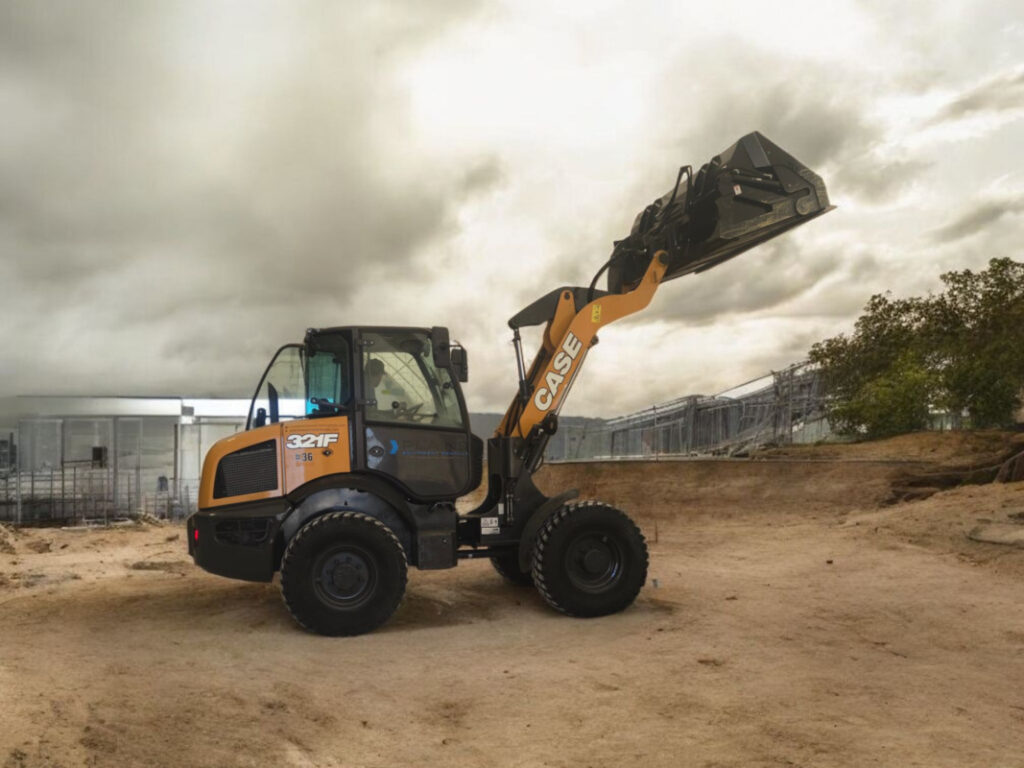
Visibility & Operator Comfort
Compact loaders typically have a higher operator platform and side-entry cabs, providing far better visibility and more ergonomic comfort than skid steers, which require climbing over the front to enter.
Ground Impact & Steering
Thanks to articulated steering, compact loaders create less surface damage, making them ideal for paved, finished, or sensitive work environments. Skid steers use differential steering, which can rut or tear up surfaces during tight turns.
Speed & Lift Height
Compact loaders tend to offer faster travel speeds and superior lift heights, helping crews move between locations more efficiently and load into higher-sided trucks with ease.
Compact Loader Specs at a Glance
- Operating weight: 5,000 to 15,000 lbs
- Bucket capacity: 0.5 to 2 cubic yards
- Attachment compatibility: Many models use the same quick-attach system as skid steers
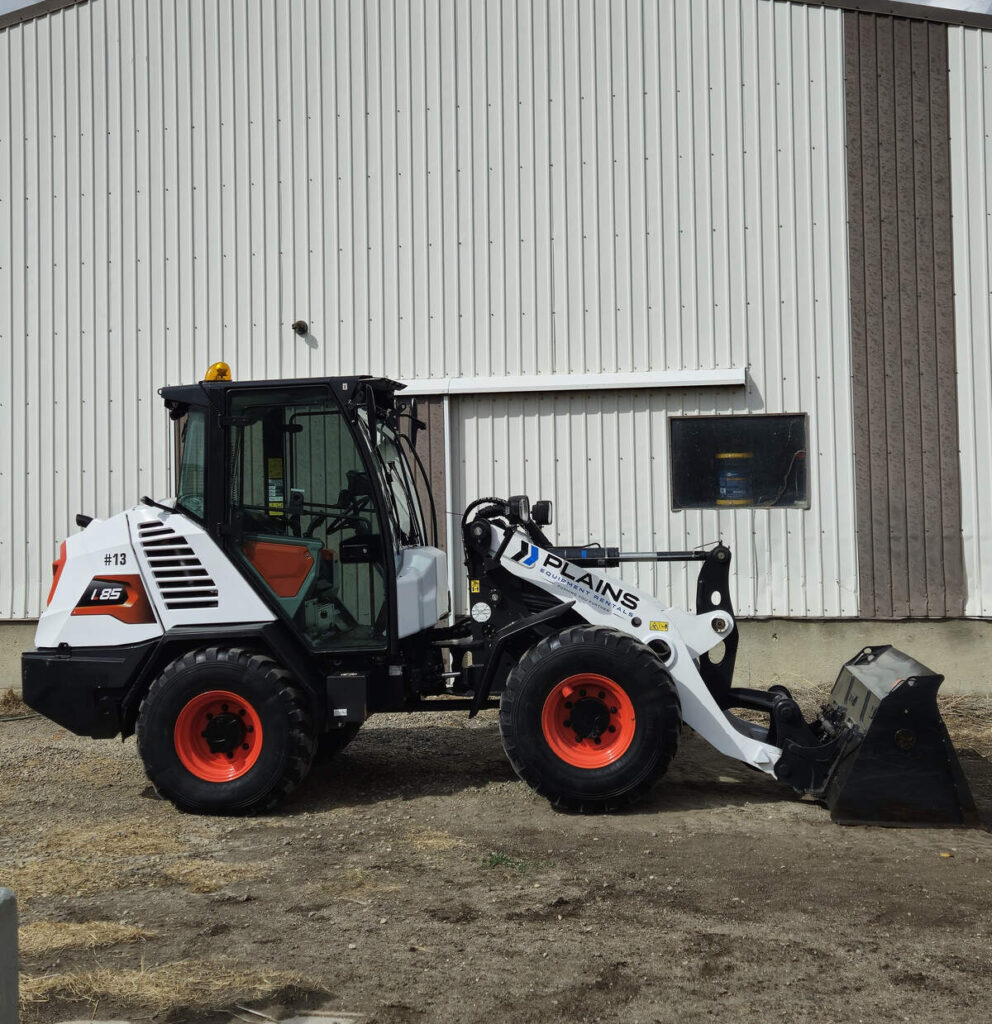
Best Use Cases
If you’re working in urban construction, landscaping, or municipal maintenance, a compact wheel loader offers more control, speed, and site protection, especially where tight quarters or finished surfaces are involved.
How to Choose the Right Wheel Loader for Your Project
When it comes to renting a wheel loader, selecting the right machine isn’t just about availability, it’s about fit. Choosing the wrong size or spec can lead to overspending, inefficiencies, or even project delays. Here’s how to make the right call:
1. Understand Your Application
Different jobs call for different specs:
- Snow Removal: Look for loaders with high lift and wide bucket capacity. Front-mount attachments like snow pushers or blades are a must.
- Agriculture: Maneuverability and visibility are key. Compact wheel loaders are great for barn and feedlot work.
- General Construction: You’ll want balanced power, reach, and breakout force for site prep, grading, and material loading.
2. Size Class: Compact vs Full-Size
- Compact Wheel Loaders: Easier to transport, more fuel-efficient, and ideal for tight workspaces or lighter-duty tasks.
- Full-Size Wheel Loaders: Better suited for heavy material handling, larger job sites, or long-term use in rugged environments.
3. Key Specs to Review
- Lift Height: Will the loader clear the truck or bin you’re loading into?
- Breakout Force: Do you need muscle to dig into packed material?
- Attachment Compatibility: Make sure your rental supports quick-attach systems if you’re planning to swap tools.
4. Consider Transport and Site Mobility
- Will you need to haul the loader between job sites?
- Is your work area paved or rough terrain?
Pro Insight: One of the most common mistakes renters make is going too big. If your project doesn’t require maximum horsepower, a compact loader could save you thousands over time, not to mention fuel, delivery, and operator costs.
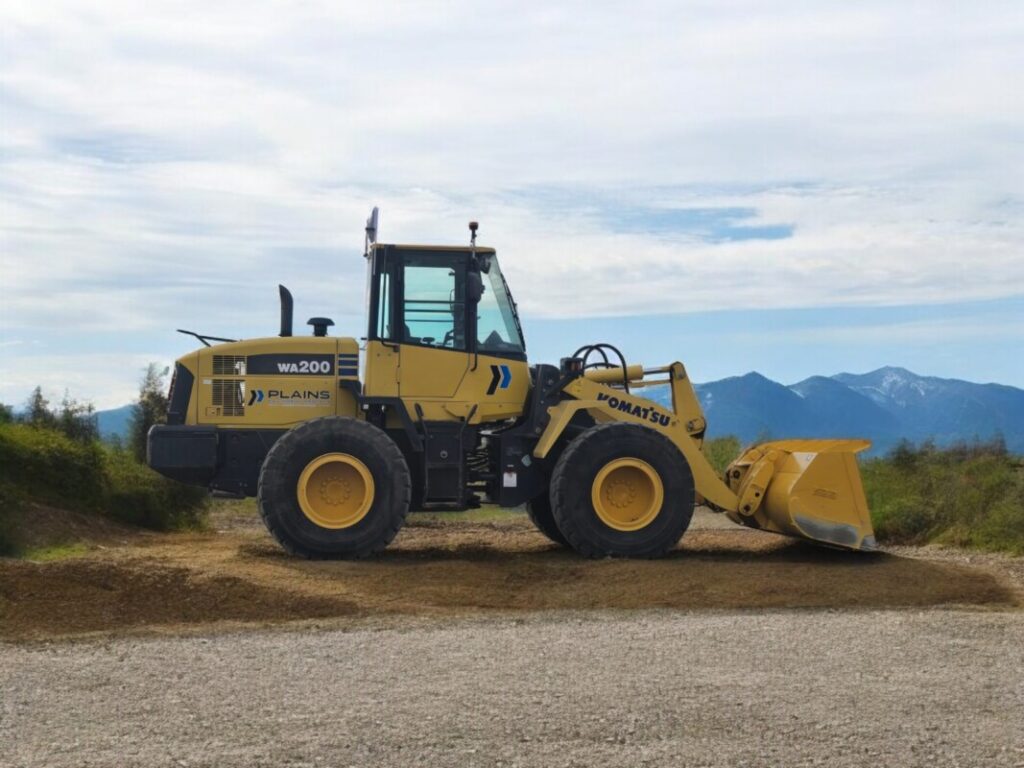
Wheel Loader Rental Costs in Western Canada (and How to Get the Best Value)
If you’re searching for wheel loader rentals in Western Canada, understanding the typical cost breakdown is key to budgeting effectively. Here’s a quick look at standard pricing:
- Daily Rate: $350 – $1,500+
- Weekly Rate: $1,500 – $5,500+
- Monthly Rate: $4,000 – $14,000 and up
These rates can vary depending on the size, brand, age of the equipment, and region.
How to Save on Your Next Wheel Loader Rental
Many contractors overpay by renting based on fixed periods rather than actual machine usage. To avoid this common mistake:
- Opt for long-term rentals if your project requires extended use but not daily operation.
- Choose rental companies like Plains Equipment Rentals that offer usage-based pricing, so you’re not stuck paying for idle time.
- Book ahead to lock in availability and avoid last-minute rate hikes during peak construction season.
Want to avoid more costly missteps? Be sure to avoid common heavy equipment rental mistakes.
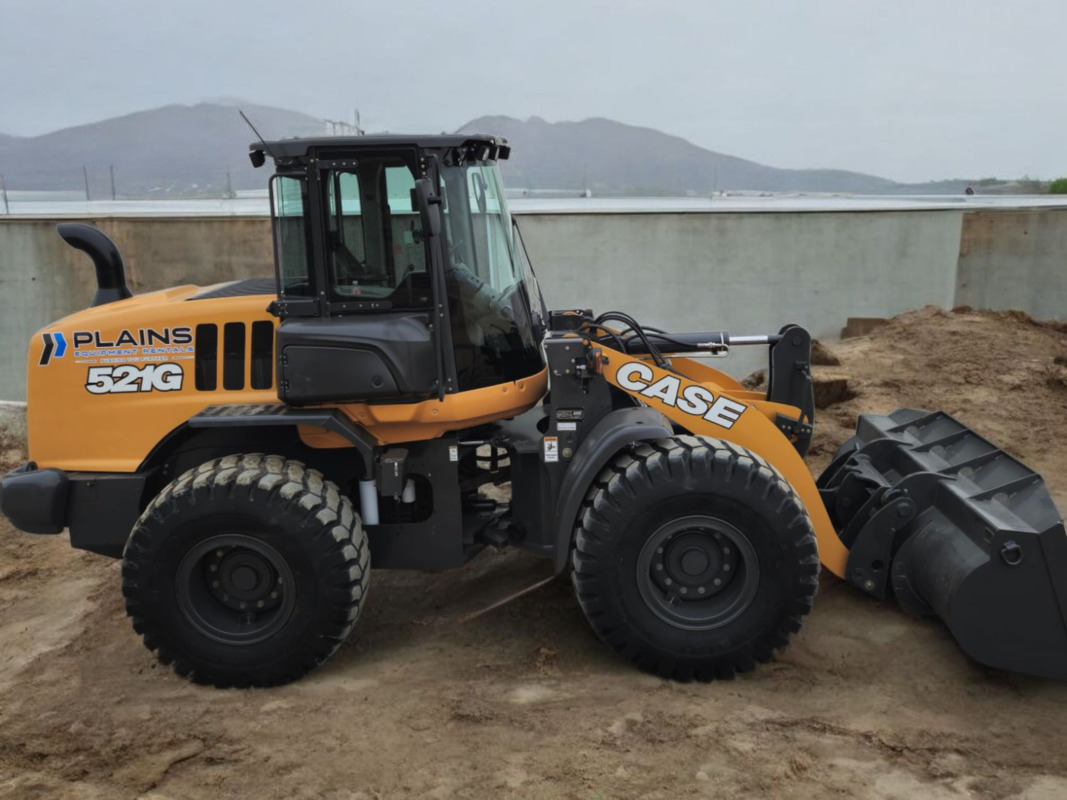
Performance, Attachments & Road Features to Consider
Wheel loaders are versatile machines used in construction, agriculture, and snow removal, often adapted to multiple job types through attachments. Depending on your project’s needs, performance specs and roadability features can make a big difference.
Common Attachments:
- Forks – Ideal for material handling and pallet movement
- Buckets – Standard for lifting and loading dirt, gravel, or debris
- Snow Pushers – Essential to make the most out of each pass
- Brooms – Useful for site cleanup and snow clearing
Key Performance Metrics to Watch For:
- Breakout Force – Indicates how easily the loader can lift and pry material
- Lift Capacity – Helps match the machine to the load requirements
- Full Turn Tipping Load – Critical for stability and safe operation
Some wheel loaders also come equipped with ride control systems and high-speed gears that allow for smoother travel over uneven surfaces or longer distances. However, it’s important to note that these features don’t necessarily make the machine street legal, always check local road regulations before operating on public roads.
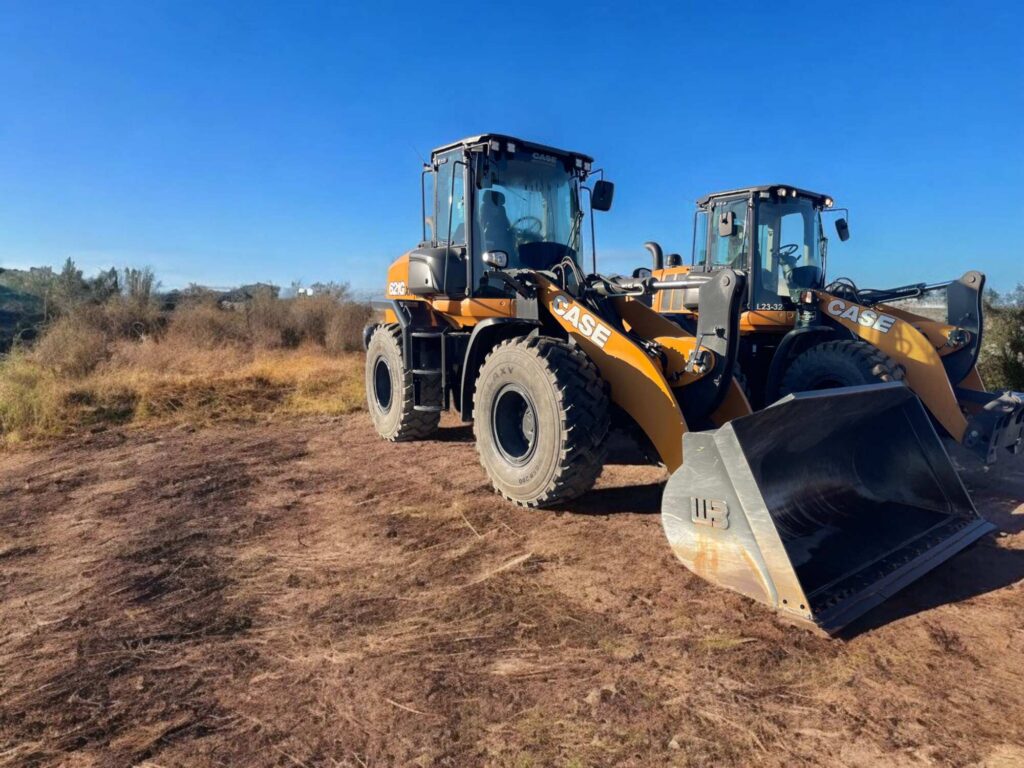
Choosing the Right Wheel Loader in Western Canada
When it comes to renting a wheel loader, making the right choice goes beyond just size or horsepower. Whether you’re working within city limits and need a road-legal machine, or you’re tackling a large-scale site requiring high-capacity loading, the right equipment can make all the difference in your project’s efficiency and cost.
That’s why partnering with a local expert matters. At Plains Equipment Rentals, we take the time to understand your job site needs, ensure road compliance where required, and match you with a loader that fits both your workload and your budget.
Looking for the right fit?
View our available wheel loaders or contact our team to talk through your next project. We’re here to help you make a smart, informed rental decision.


